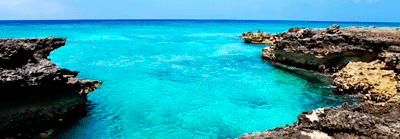News about maps
Digital cartography and GPS navigation
Mapstor news
This Day in History
Travelling with mapstor.com
This Day in History
4th December, 1674 Marquette founded the first European settlement
19th November, 1875 was born Hiram Bingham
18th November, 1832 was born Nils Adolf Erik Nordenskiöld
14th November, 1963 the island Surtsey was founded
11th November, 1729 was born Louis Antoine comte de Bougainville
10th May, 1503 were discovered Cayman Islands
 On the 10th of May, 1503 during the fourth voyage to the New World Christopher Columbus discovered and mapped the Cayman Islands.
On the 10th of May, 1503 during the fourth voyage to the New World Christopher Columbus discovered and mapped the Cayman Islands.
In the diaries he wrote that "the ships approached the two small islands, which is home to many turtles." In connection with this fact sailors named the islands Las Tortugas, which translates as Turtle Island. However, on maps in 1523 they have already been marked as «Lagartos». But on maps in 1530 appeared Cayman Islands.
On the topographic map it is shown that the Cayman Islands are located in the Caribbean, 240 km from Cuba, at a distance of 267 km from Jamaica, and 730 km from Miami. Cayman Islands consist of three islands - Cayman Bra and Little and Grand Cayman with total area of 264 sq. km.
In 1586 the Englishman Francis Drake visited islands. Since then, the island remained uninhabited, though become a significant transit point for ships plying the Caribbean. Sailors here hunted local turtles, thus replenishing the stock of provisions.
The first settlers moved here in 1661. But a decade later because of attacks of the Spaniards, they were forced to go back to Jamaica. After that here lived survivors of the shipwreck, explorers or people who hide from creditors or pirates. The first settlement on Grand Cayman was founded only at the beginning of the XVIII century, and the other two islands were inhabited later - in XIX century.
According to Census in 1802 Grand Cayman is home to just over 900 people, while 545 of them were slaves. In 1835 slavery in the Cayman Islands was abolished.
Since 1670 control over the territory of the Cayman Islands passed to Britain under the Madrid Agreement. Political map of the world demonstrates that today Cayman Islands are British possession. The population reaches 55,000 people.
Backbone of the economy of the islands is sale of sharkskin, tortoise meat and shells (turtles are raised on special farms), tourism (beautiful white beaches and excellent conditions for underwater fishing annually attract more than 2000 000 tourists).
This Day in History 10-05-2014


